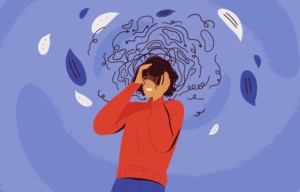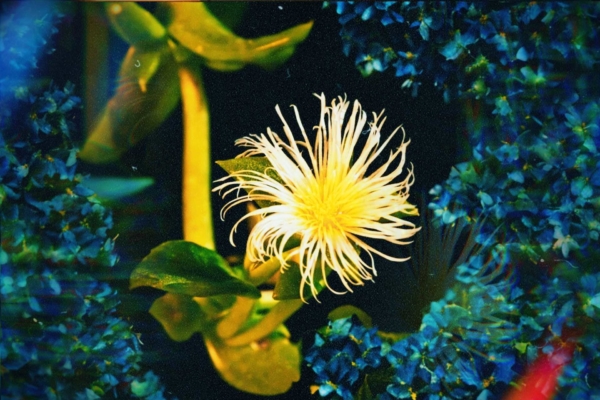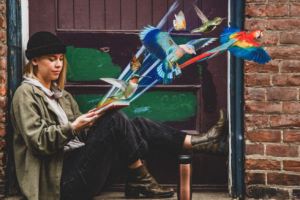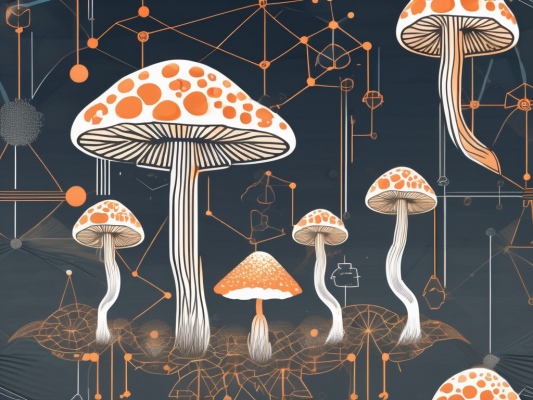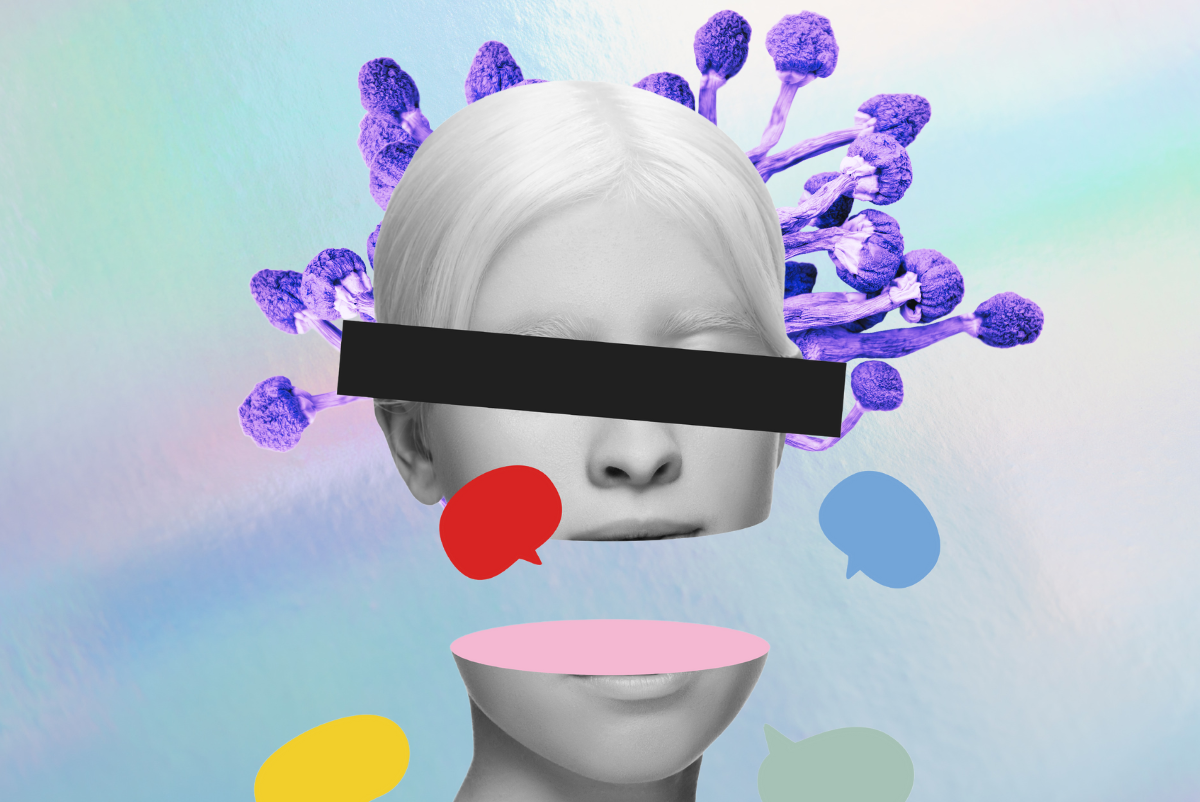
Some milestones in life are inherently transformational. For many, parenthood is one such milestone. For others, a psychedelic journey is a life-changing experience. And for people who experience both, how do they approach psychedelic parenting?
Enter Plant Parenthood. Founded by Rebecca Kronman, licensed clinical social worker, and Andrew Rose, mindfulness teacher and psychedelic integration coach. Plant Parenthood encourages the flourishing of open conversations around psychedelics, plant medicine, cannabis, and parenting. Specifically, Plant Parenthood provides online integration circles and educational events for parents who use (or are thinking of using) psychedelics for personal growth, to explore their spirituality, deal with trauma, or just have fun (because after all, parents are people too).
Creating a safe space to talk about psychedelic parenting
Kronman believes parents can benefit from connecting with others in similar life situations to feel comfortable speaking about their psychedelic experiences.
“While many groups existed to support community building around psychedelic use, none was geared towards this niche specifically,” says Kronman. “I recognized that parents were often using these substances differently and needed their own container. It would be awkward for a parent to show up at an integration circle full of young adults with no children talking about the challenges of tripping with a toddler in the other room!”
To date, the Plant Parenthood community has addressed topics like how to speak to children about psychedelics and other substances, children and psychedelics, psychedelics and pregnancy, and families who trip together.
How do psychedelics impact parenting?
Rose believes that the shift into parenthood can carry entrenchment in routines, habits, and patterns that are not necessarily beneficial. However, psychedelics can shake up entrenched perspectives, encouraging re-evaluation.
“Settling into parenthood can lead to very stuck patterns —to say nothing of the intergenerational habits and unresolved issues we may have with our parents or family that suddenly rear their heads,” he observes. “Psychedelics can be really useful for disrupting these patterns and the automatic pilot parenting that can sometimes occur.”
Kronman adds that parents who choose to work with psychedelics often do so because they’re prompted by the desire to improve as a parent and heal harmful habits and behaviors.
“We also hear from many people who describe a greatly enhanced capacity to connect with their children once they start using psychedelics,” says Kronman. “After all, these medicines make our brains more entropic, just like children!” For people with older children, conversations around these substances can bring them closer together because they often include discussions about self-compassion, interconnectedness and disclosures that build trust.
Beyond self-healing and growth work, however, psychedelics can be fun. “Parents are still people who want to connect with their sense of fun,” says Kronman. “We see lots of parents using psychedelics as a vehicle for release and connection with friends. This can be a way for them to show up for their kids, refreshed and renewed without a hangover from alcohol.”
Kronman nonetheless cautions that psychedelics benefit from thoughtful, respectful use. “We don’t intend to idealize these substances because they can absolutely be misused or cause harm,” she says. “So some parents are dealing with the fallout of a difficult psychedelic experience or difficulties with other family members as a result of their psychedelic use, which can have a negative impact on their parenting.”
Integrating psychedelic experiences into parenting
The psychedelic experience often conjures superlative adjectives such as awe-inspiring, mind-blowing, and life-changing. However, the key to unlocking enduring change often lies in the integration that takes place post-journey.
Integration has been described as the bridge between the psychedelic experience and daily life. Through the process of integration, the individual recalls insights from their experience to inform their daily functioning. However, gaining perspective on latent, long-standing personal and interpersonal issues can also be very disruptive. “There’s no guarantee that this will be inherently beneficial, which is why good education, support, and integration work is so important,” says Rose.
Rose believes that parents who engage in proper integration after their trip will find that the benefits extend to their parenting.
“Integration literally means to ‘make whole,’” reflects Rose. “It’s about connecting parts of ourselves that might not be fully connected, and about connecting to others around us. For example, if someone is working on speaking to their kids in a gentler way, then their integration work might involve really looking at their own self-talk and developing a loving kindness practice that will then extend to their kids.”
Kronman points out that there are also other fun, creative ways for parents to integrate psychedelic experiences.
“Play is a big one, especially with younger kids!” says Kronman. “Little ones are such an incredible model for what it looks like when you’re not operating from an egoic place. Entering into the imaginary worlds that our children inhabit can bring us into a space of wonder, much like psychedelics.”
Communicating with children about psychedelics
Given the current legal status of most psychedelic substances in the United States (and worldwide), parents can feel conflicted about whether children should be made aware of their use. Kronman believes there’s no single correct answer when it comes to talking to children about psychedelics, and the decision is personal and context-specific.
“Every family will feel a different level of comfort with disclosure, awareness, or participation in psychedelic experiences,” says Kronman. “What we think is important is having a safe community where people can disclose this information privately. Secrecy breeds shame, and shame breeds unsafe drug use.”
Rose adds that it’s worth asking how children benefit from having things hidden from them.
While open, fact-based conversations with children may be a good idea, however, everyone’s circumstances are unique. “For example, if someone is in a custody battle, that might not be a good time to start talking about psychedelics,” says Kronman.
Nonetheless, Kronman believes it’s vital to let kids know that legality is not the same as morality. “This is something that kids of any age can understand. Young kids definitely get fairness,” emphasizes Kronman.” Conversations with kids about psychedelics should absolutely include a discussion about the drug laws in this country and how they have disproportionately impacted communities of color.”
Involving children in psychedelic experiences
Beyond talking to children about psychedelics and awareness, however, lies the taboo question of involving children in psychedelic experiences. Within the Western canon, the topic of children and psychedelics is profoundly stigmatized and off-limits. However, among some indigenous cultures, such as the Huichol Indians of Mexico, it’s normal for children to receive age-appropriate doses of peyote. In the Plant Parenthood community, Rose has noted that questions about children and psychedelic use are starting to stir.
“People are increasingly asking about children/adolescents/teens being given or eventually prescribed psychedelics for mental health issues,” observes Rose. “This is a really taboo topic and one we are trying to surface more in the interest of harm reduction. It may sound a little out there for some, but when you also consider that very young children are also being prescribed SSRIs for depression and medication for ADHD that really amounts to methamphetamine, it starts to seem a little more tame–that’s not to demonize these other substances either, but just to put things in context.”
That being said, Rose advises parents asking such questions to direct their attention to themselves and the home environment first.
“Whenever I hear from parents concerned for their children and hoping for magic solutions, the first piece of advice I offer is to look in the mirror and around the home,” he says.
“Chances are, there is work we can do on ourselves as parents, and in relationship with our co-parents, that can be hugely impactful on our children’s lives.”
For more information, please visit the Plant Parenthood website.
